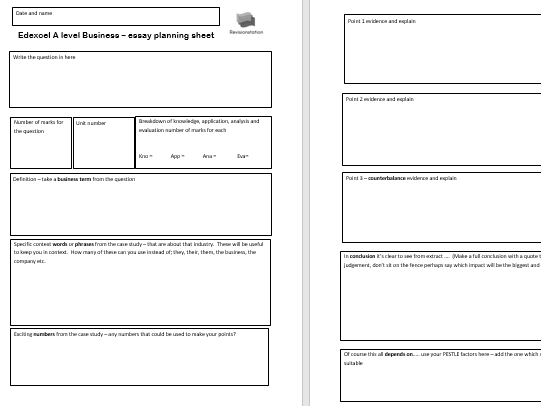Revisionstation's Shop
Sarah Hilton has been a business examiner for over 20 years and a business teacher for longer. She is now a teacher trainer, business teacher and qualification developer. She runs the website revisionstation which provides smashing business teaching resources at budget prices.





















